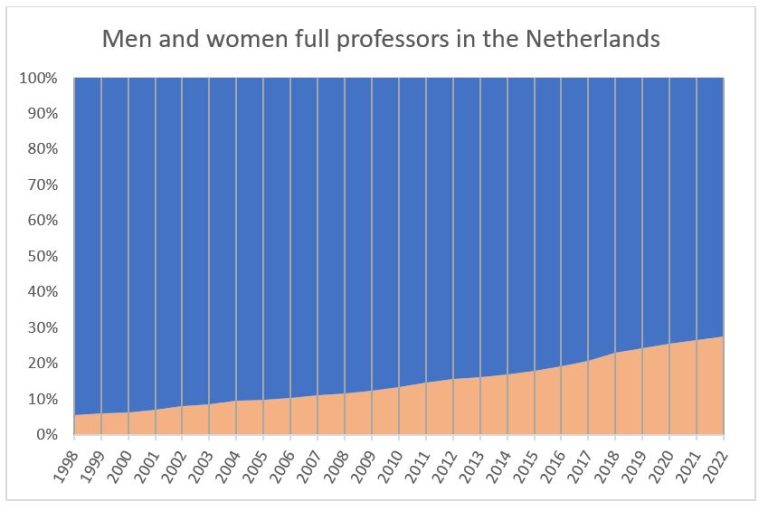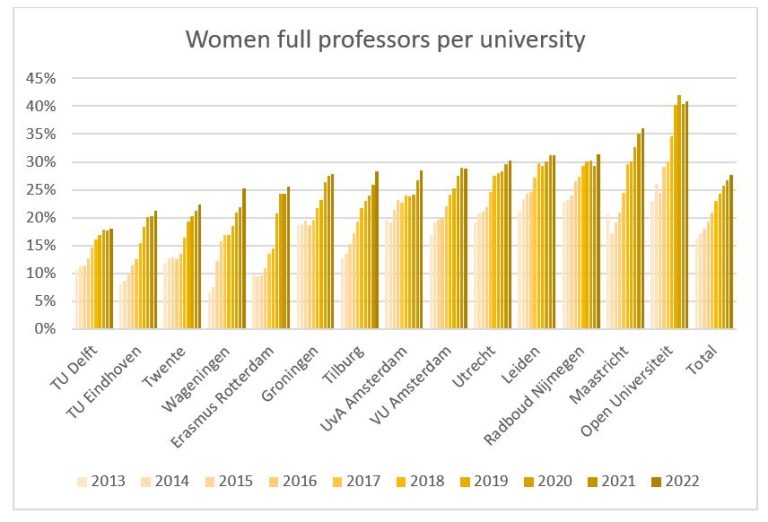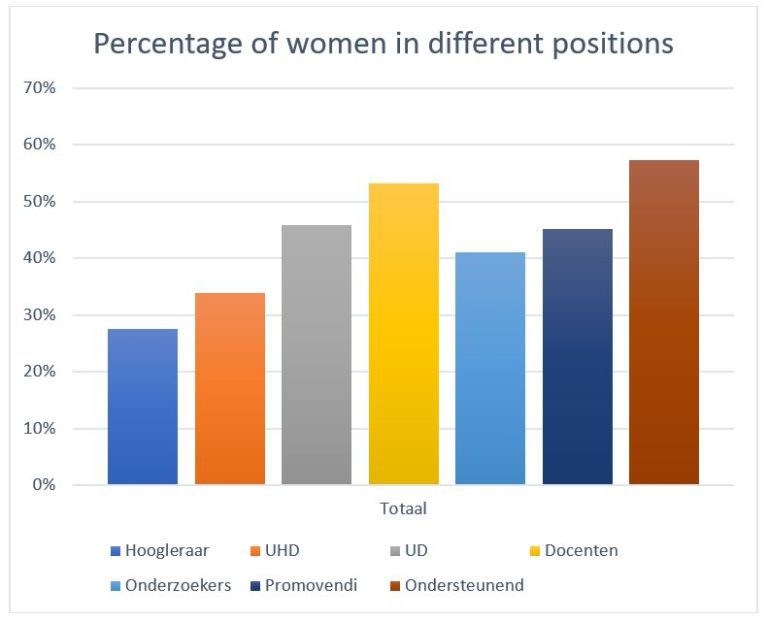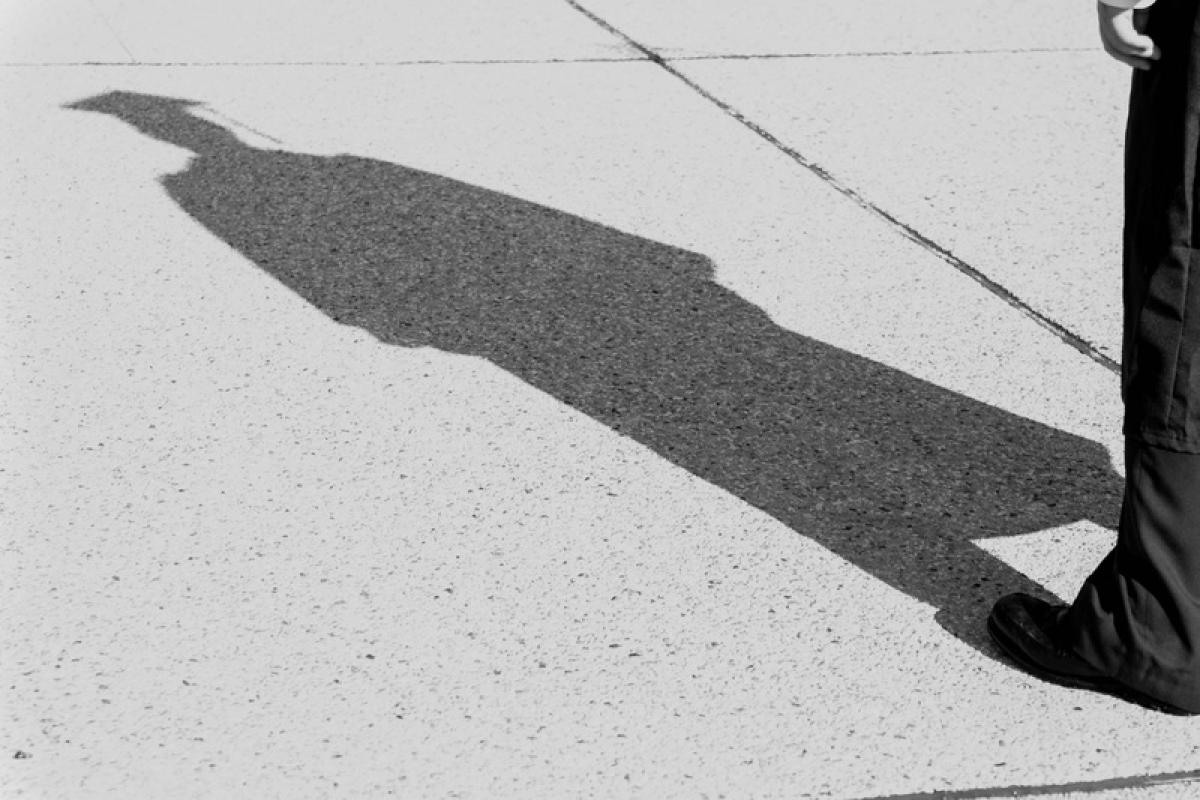For the second year running, the percentage of women full professors has risen by less than one percentage point. Less than 28 percent of all full professors are women.
TU Delft, as in previous counts, is lagging behind. However, the percentage of female professors this year did increase by 0.3 percent, to 18.1 percent. (Photo: CParks / Pixabay)
This is shown by the staff figures of the universities. To be more exact, last year 26.7 percent of professors were women and this figure has now increased to 27.6 percent.
Following the sharper increases in 2017 and 2018, progress has all but stalled. At this rate, it would take until 2046 for there to be an equal number of men and women full professors in the Netherlands.

© HOP. Blue: men. Pink: women. Source: Universities of the Netherlands (UNL). In FTEs, excluding the field of healthcare.
The situation varies per university. In Wageningen, the share of women professors has increased by more than three percent. Nijmegen and Tilburg have seen a rise of just over two percent. But at Vrije Universiteit Amsterdam, the percentage of women professors has actually dropped a few decimal points.
TU Delft
TU Delft, as in previous counts, is at the bottom of the list. The percentage of female professors there rose by 0.3 percent, to 18.1 percent. This puts the number well below 25 percent, the target for 2025. This figure is also included in the TU Delft Gender Equality Plan. This states that the university aims for more equality and closely monitors whether efforts to get more female professors at TU Delft are effective.
Despite that aspiration, the bomb burst at the Faculty of Aerospace Engineering (AE) this summer. In late August, associate professor Daphne Stam announced that she had resigned from the faculty in April. Paternalism and unfair power relations were reasons for her to leave.
There are currently only two female professors at AE. Dean Henri Werij confirmed in response to Stam’s news in Delta that a culture change is needed. “2023 is the year in which we concentrate on culture. we have set up a very serious programme. We held a Faculty week in March. This was the start of a wider programme on getting on with each other.”
The Diversity, Equity & Inclusion week (3 to 6 October) will also focus on gender equality at TU Delft. For example, DEWIS is organising a panel meeting on equal opportunities and PhD student Shirley de Wit (Electrical Engineering, Mathematics and Computer Science) is giving a lecture on stereotypes and gender-inclusive education.

© HOP. Source: Universities of the Netherlands (UNL). In FTEs, excluding the field of healthcare.
PhD candidates
Back to the nationwide overview. Descending one step on the career ladder, we find more women, although the difference as compared to full professors isn’t very big. One in three associate professors is a woman. This figure grew by 1.4 percentage points over the past year.
Looking at lecturers without any research tasks, the majority are women. The same goes for support staff, ranging from receptionists to policy officers.
Men still outnumber women when it comes to PhD candidates, but according to Statistics Netherlands (CBS) the number of men and women having completed a PhD in the past two years is roughly the same. It would appear that men are more likely to take a bit longer or to fail to reach the finish line.

© HOP. Source: Universities of the Netherlands (UNL). In FTEs, excluding the field of healthcare.
HOP, Bas Belleman / Delta
Do you have a question or comment about this article?
redactie@hogeronderwijspersbureau.nl


Comments are closed.